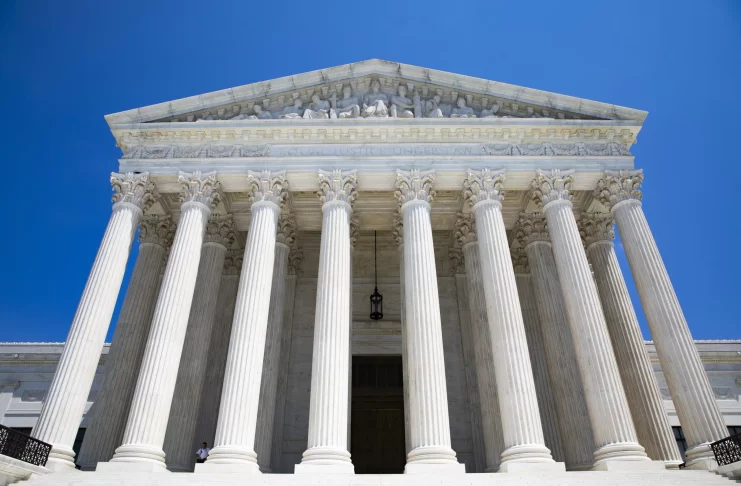The U.S. Supreme Court dealt a fatal blow to affirmative action on Thursday.
The Supreme Court severely limited the use of race as a factor in college admissions.
The court's six conservative justices ruled Harvard's and UNC's admissions scheme did not comply with the 14th Amendment's guarantee of equal protection.
“Both programs lack sufficiently focused and measurable objectives warranting the use of race, unavoidably employ race in a negative manner, involve racial stereotyping, and lack meaningful end points,” Chief Justice John Roberts wrote for the majority.
“We have never permitted admissions programs to work in that way, and we will not do so today,” he continued. “At the same time, as all parties agree, nothing in this opinion should be construed as prohibiting universities from considering an applicant's discussion of how race affected his or her life, be it through discrimination, inspiration, or otherwise.”
Fox News has more:
Students for Fair Admissions, a student activist group, brought cases against both Harvard and University of North Carolina. The group initially sued Harvard College in 2014 for violating Title VI of the Civil Rights Act, which “prohibits discrimination on the basis of race, color, or national origin in any program or activity that receives Federal funds or other Federal financial assistance.”
The complaint against Harvard alleged that the school's practices penalized Asian American students, and that they failed to employ race-neutral practices. The North Carolina case raised the issue of whether the university could reject the use of non-race-based practices without showing that they would bring down the school's academic quality or negatively impact the benefits gained from campus diversity.
The First Circuit Court of Appeals had ruled in Harvard's favor, upholding the outcome of a district court bench trial. The district court said that the evidence against Harvard was inconclusive and “the observed discrimination” affected only a small pool of Asian American students. It ruled that SFFA did not have standing in the case.
In the UNC case, a federal district court ruled in the school's favor, saying that its admissions practices withstood strict scrutiny.
Justice Ketanji Brown Jackson recused herself from the Harvard case due to her previous role on Harvard's Board of Overseers.
This is a breaking news story. Click refresh for the latest updates.
READ NEXT: Explosive UFO Retrieval Claims By Senate Intel Committee Vice Chair




Victory Indeed Hooray